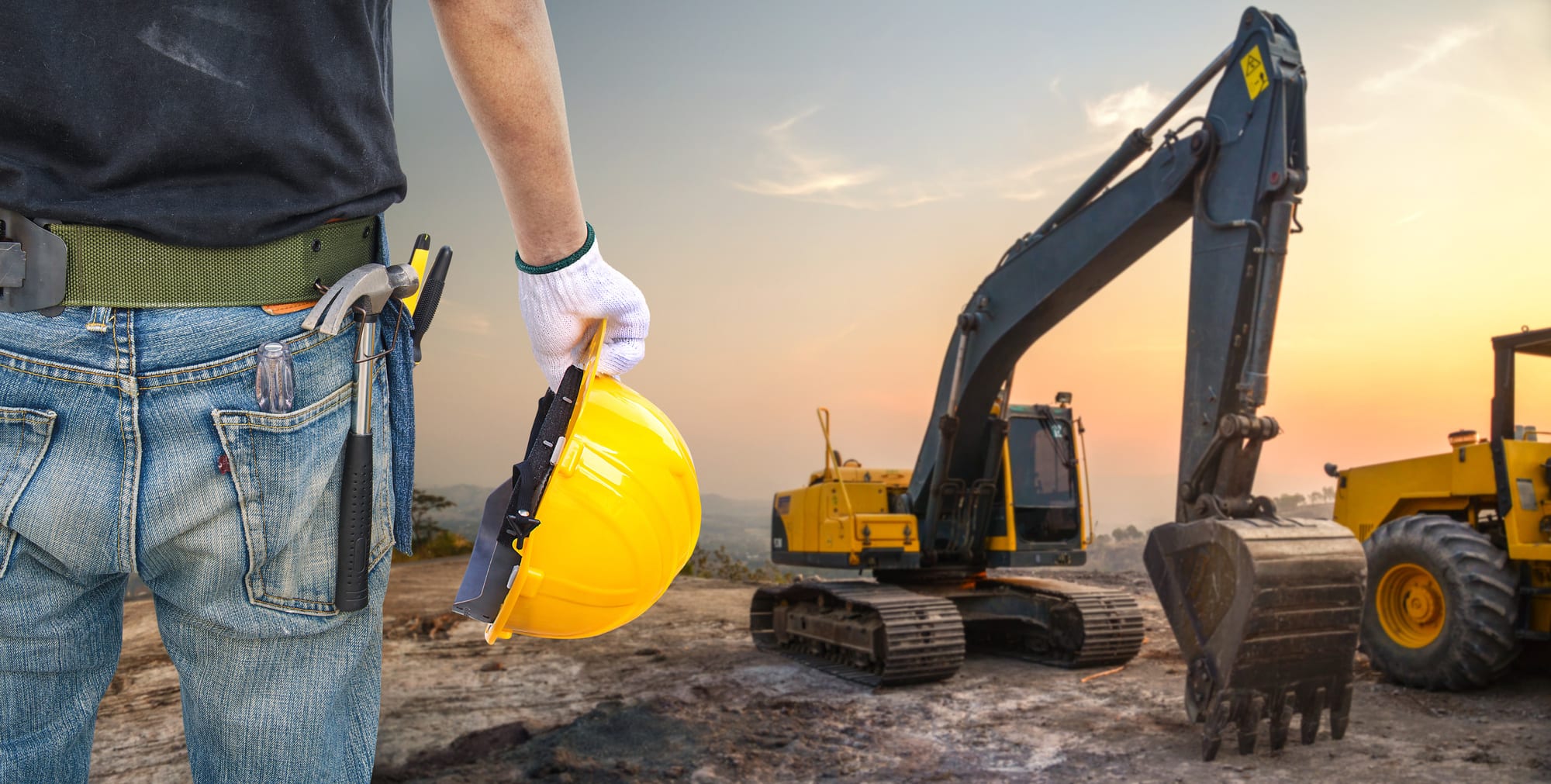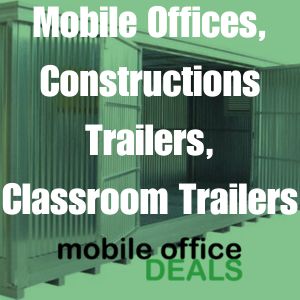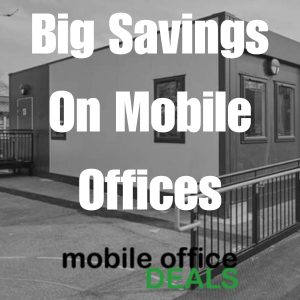
Top Factors to Consider When Shopping for Construction Trailers
Construction trailers are vital assets for job sites, serving as a base for administrative tasks, meetings, and equipment storage. Choosing the right construction trailer can significantly impact productivity and efficiency. In this comprehensive guide, we’ll explore the top factors to consider when shopping for construction office trailers, helping you make an informed decision that aligns with your project needs and budget.
Understanding the Role of Construction Trailers
Before delving into the specifics of choosing a trailer, it’s crucial to understand the primary roles these trailers play on a construction site. They provide the infrastructure needed to facilitate operations, improve workflow, and support the workforce.
Office Space
Construction trailers provide a dedicated area for project managers and staff to conduct meetings, handle paperwork, and coordinate daily activities. This helps keep operations organized and efficient, offering a quiet space away from the hustle and bustle of the job site. Here, plans are reviewed, strategies are discussed, and progress is monitored, creating a centralized hub for communication.
Storage and Break Areas
These trailers can double as secure storage for tools, equipment, and materials, keeping them organized and protected. This is particularly important in preventing loss or damage to valuable items. Trailers also offer areas for workers to take breaks, eat meals, and rest, which is crucial for maintaining productivity and morale during long shifts. Providing these comforts can lead to happier, more productive workers.
Safety and Compliance
Trailers serve as a convenient space for safety meetings, training sessions, and storing compliance documentation. This ensures that important protocols and information are readily accessible, promoting a safe working environment. They are often equipped with first-aid kits, safety equipment, and emergency plans to ensure preparedness in case of incidents.

Temporary Housing
In some cases, construction trailers may be outfitted to serve as temporary housing for workers, especially on remote sites where commuting is impractical. This adds another layer of utility, providing a home base for employees who must stay on-site for extended periods.
Key Factors to Consider
When shopping for construction trailers, several factors will influence your choice. Here’s a detailed look at what you need to consider to ensure your selection meets the demands of your project:
Size and Layout
The size and layout of your construction trailer are critical to its functionality.
- Number of Occupants: Consider how many people will use the trailer at any given time, including office staff, project managers, and occasionally visiting clients or inspectors. A cramped space can hinder productivity, so ensure there’s ample room for everyone.
- Space Requirements: A well-designed layout optimizes space for maximum efficiency, accommodating necessary spaces like offices, conference rooms, and storage areas. An open floor plan might suit collaborative projects, while a design with separate rooms could be better for privacy and focus.
- Future Expansion: Think about the potential for future expansion in your project scope, which might require additional space or layout modifications. Planning for growth can save you from needing a new trailer as your project scales.
Durability and Construction
The construction and durability of a trailer are crucial, especially given the demanding environments on construction sites.
- Material Quality: Look for trailers built with high-quality materials that withstand harsh weather conditions and the rigors of a job site. Consider trailers made from steel or reinforced aluminum for structural integrity.
- Weather Resistance: Features like weatherproofing, insulation, and sturdy roofing are essential to protect against rain, wind, and temperature fluctuations, ensuring the trailer remains functional and comfortable in all conditions.
- Longevity: Evaluate the trailer’s construction for longevity, including reinforced frames, durable exteriors, and high-quality finishes. Trailers that can endure frequent relocations and setups without deteriorating are a wise investment.

Amenities and Features
Modern construction trailers can be equipped with various amenities to enhance comfort and functionality.
- Climate Control: Essential for maintaining a comfortable work environment year-round, heating and air conditioning are critical for both productivity and worker satisfaction.
- Electrical and Lighting: Ensure the trailer has sufficient electrical outlets, lighting, and wiring to support all necessary equipment and devices. LED lighting is energy-efficient and effective for long-term use.
- Plumbing: Trailers with plumbing capabilities, including restrooms and kitchenettes, provide essential conveniences for staff, especially on remote sites where external facilities are unavailable.
- Technology Integration: Consider trailers with built-in technology features such as Wi-Fi connectivity, audiovisual equipment, and data ports to facilitate communication and collaboration.
Mobility and Setup
If your project requires frequent relocation, the ease of mobility and setup is a key consideration.
- Ease of Transport: Opt for trailers that are easy to transport and set up, minimizing downtime between moves. Consider their size, weight, and the type of vehicle required for towing.
- Towing Requirements: Verify that the trailer’s weight and dimensions are compatible with your towing vehicles and legal road regulations. Trailers should be designed for quick hookup and easy relocation.
- Stability and Leveling: Ensure the trailer has stabilizing and leveling mechanisms for a safe and stable setup on uneven terrain. Built-in leveling jacks or hydraulic systems can simplify this process.
Security and Safety
Ensuring the security and safety of your construction trailer is paramount, given the valuable equipment and documents it may house.
- Locking Systems: Invest in trailers with robust locking systems to prevent unauthorized access and theft. Consider keyless entry systems or reinforced locks for added security.
- Surveillance Systems: Some trailers come equipped with security cameras or can be fitted with them to monitor activity around the trailer, deterring theft and vandalism.
- Fire Safety: Equip the trailer with fire extinguishers, smoke detectors, and fire-resistant materials to enhance safety and comply with regulatory requirements. Regular safety inspections can help identify potential hazards.

Cost and Financing Options
Understanding the cost implications and financing options is crucial when purchasing a construction trailer.
- Initial Purchase Price: Evaluate the upfront cost of the trailer, keeping in mind that additional features and customization can increase the price. Comparing multiple options can help identify the best value.
- Long-Term Costs: Consider ongoing expenses like maintenance, repairs, insurance, and potential upgrades. Budgeting for these costs will help prevent unexpected financial burdens.
- Financing Options: Explore financing options, including leasing and renting, to determine what aligns best with your budget and project timeline. Some vendors offer flexible payment plans or lease-to-own arrangements.
Customization and Flexibility
Customization options can significantly impact the utility of a construction trailer. Look for providers offering flexibility in design and features to suit your specific needs.
- Interior Design: Customize the interior with specific layouts, colors, and materials that align with your brand or project requirements. An inviting and functional interior can boost morale and productivity.
- Exterior Modifications: Consider trailers that offer exterior modifications like awnings, ramps, and signage to enhance functionality and branding.
- Expandable Options: Trailers with expandable sections or modular designs can provide added flexibility, allowing for adjustments as project needs evolve.
Vendor Reputation and Support
Choosing a reputable vendor is essential to ensure you receive a quality product and reliable support.
- Reputation: Research vendors to assess their reputation in the industry by checking customer reviews, testimonials, and case studies. A vendor with a history of positive feedback is likely to provide better service and support.
- Support Services: Ensure the vendor offers comprehensive support services, including delivery, setup, maintenance, and repairs. Responsive customer service can save time and prevent headaches.
- Warranty and Guarantees: Look for warranties and guarantees on the trailer and its components to provide peace of mind in case of defects or issues. A good warranty can indicate confidence in the product’s quality.

The Buying Process: Steps to Follow
To ensure a smooth buying process and make an informed decision, follow these steps:
Define Your Requirements
Begin by clearly defining your project requirements, including the number of occupants, desired features, and budget constraints. Consider the specific needs of your site and staff to create a detailed list of criteria. Engage with your team to understand their requirements and preferences, ensuring the trailer will meet daily operational demands.
Research and Compare Options
Conduct thorough research on available construction trailers, comparing different models, sizes, and features. Utilize online resources, industry publications, and vendor websites to gather information. Attend industry events or trade shows to see trailers in person and interact with experts who can offer insights into the latest innovations and trends.
Visit Showrooms or Trade Shows
If possible, visit showrooms or trade shows to see construction trailers in person. This allows you to evaluate the quality, size, and layout firsthand, providing valuable insights for your decision-making process. Use this opportunity to ask questions about durability, customization, and support services directly with representatives.
Request Quotes and Proposals
Contact multiple vendors to request quotes and proposals based on your requirements. Compare pricing, features, and services offered by each vendor to determine the best value for your investment. Look for transparency in pricing and the inclusion of any additional fees or charges in the quotes.
Evaluate Financing Options
Consider financing options such as leasing, renting, or purchasing to determine the most cost-effective solution for your project. Discuss options with vendors and financial advisors to make an informed choice. Evaluate the pros and cons of each option to determine what aligns with your financial strategy.
Finalize the Purchase
Once you’ve selected the ideal construction trailer and vendor, finalize the purchase by reviewing contracts, warranties, and terms of service. Ensure all details align with your expectations before proceeding. Pay close attention to any fine print regarding maintenance obligations, warranty conditions, and delivery timelines.
Coordinate Delivery and Setup
Work with the vendor to coordinate the delivery and setup of your construction trailer on-site. Ensure the trailer is properly installed, leveled, and connected to utilities as needed. Develop a plan for integrating the trailer into your workflow and establishing protocols for security and maintenance.
Selecting the right construction trailer is a crucial decision that can impact the efficiency and success of your project. By considering the factors outlined in this guide, you can make an informed choice that aligns with your needs, budget, and long-term goals. The right trailer will not only facilitate daily operations but also enhance worker productivity, morale, and safety.
